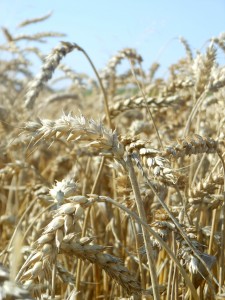 uents in a nondigestible, chemically modified wheat fibre to be added to food products may help to prevent the development of metabolic diseases that increase heart attack risks and cancer, according to new research from South Dakota State University (SDSU).
uents in a nondigestible, chemically modified wheat fibre to be added to food products may help to prevent the development of metabolic diseases that increase heart attack risks and cancer, according to new research from South Dakota State University (SDSU).The research, which was originally published in the SDSU Agricultural Experiment Station 2013 Annual Report, found that participants who were fed the ‘resistant starch’ had both lowered cholesterol and body fat levels.
Moul Dey, SDSU associate professor of health and nutritional sciences, conducts research to understand how nutrients can affect gene expression and subsequently impact the development and progression of diseases. Professor Dey’s two recent studies, among several others, focus on using whole grain constituents to prevent the development of metabolic diseases that increase heart attack risks and cancer – the two leading killers of Americans.
Professor Dey collaborated with professor Bonny Specker, director of the Ethel Austin Martin Endowed Program in Human Nutrition at SDSU, to study the effects of a special, nondigestible, chemically modified wheat fibre called resistant starch on metabolic syndrome. The starch resists digestion and is a naturally low-calorie food ingredient.
In the United States, 34 per cent of adults have metabolic syndrome, which significantly increases their chances of developing heart disease. Associated conditions include high blood pressure, insulin resistance, high levels of triglycerides and bad cholesterols in the bloodstream as well as low levels of good cholesterol, and obesity.
Study method
The research, conducted in two 12-week sessions over a 26-week period, involved 86 adults in two Hutterite colonies in eastern South Dakota.
The starch was incorporated into the intervention group’s flour. All the meals in this communal setting are prepared from scratch and every meal contains one or two flour-based items. Conducting the study through the colonies also potentially minimised the genetic variability in response to the intervention, Professor Dey said.
Unlike many dietary intervention studies, the researchers used what Professor Dey called “a free-living, community-style environment” and made minimal modifications to the participants’ habitual diet. This use of realistic – rather than controlled – experimental conditions, along with the fairly large sample size and low attrition rate, also increased the validity of the findings, according to the researchers.
Researchers said all facets of cholesterol were lowered in participants who consumed the special fibre and who had pre-existing metabolic syndrome.
“We saw striking differences,” Professor Dey said. “The non-HDL types of cholesterols went down significantly, but we also saw a lowering of good HDL cholesterol,” she said.
Several recent publications, however, assert that decreasing bad cholesterols benefits a person’s health more than increasing the good cholesterol. Results also showed that this special fibre significantly decreased body fat and increased lean body mass among both the healthy participants and those with pre-existing metabolic syndrome conditions.
However, the participants’ overall body mass index did not change and the overall weight loss during the study was not significant.
Next steps
The researchers said that they would now examine underlying gene expression changes linking the observed physical effects and any potential associated changes in the participants’ gut microbial profile after consumption of this prebiotic fibre. This would then form the basis for Professor Dey to seek funding for a larger study of a more diverse population.





